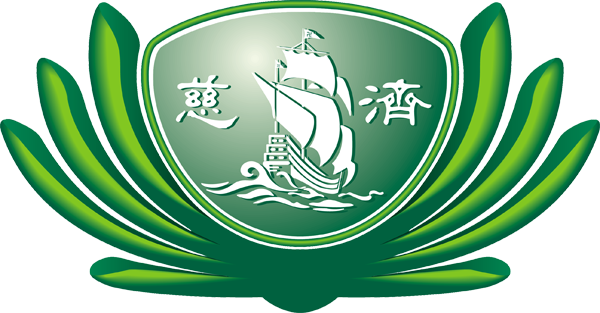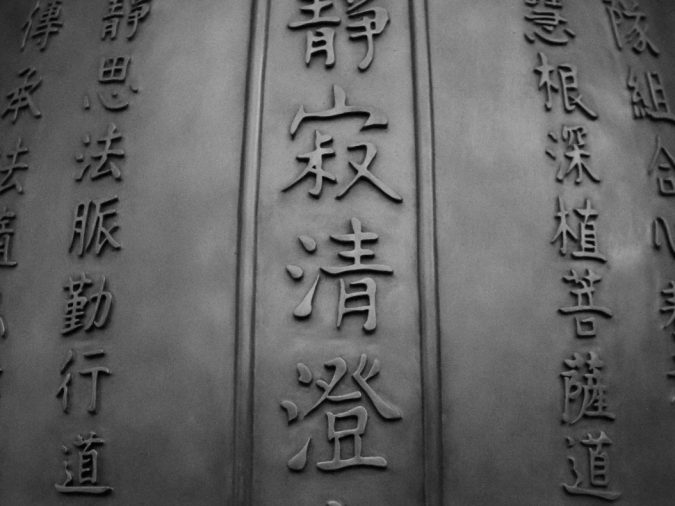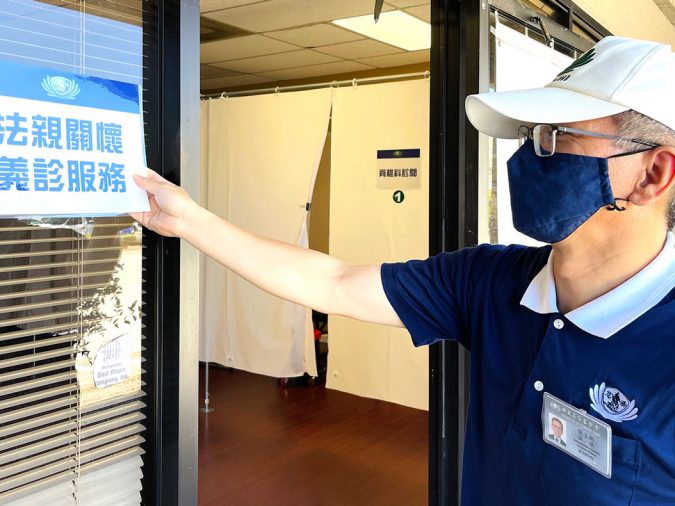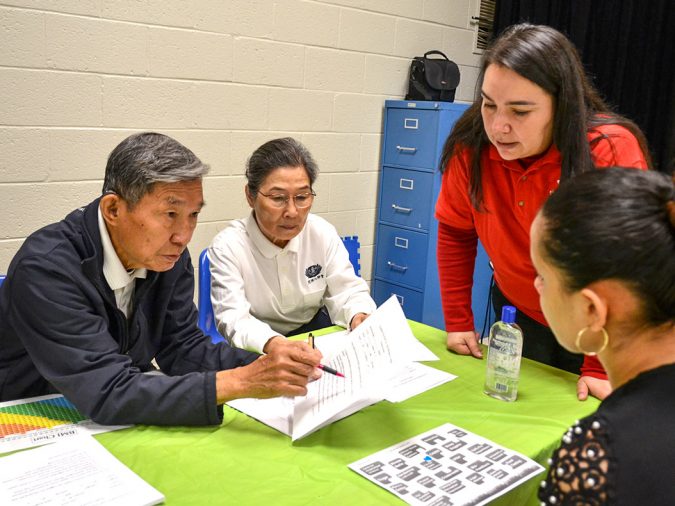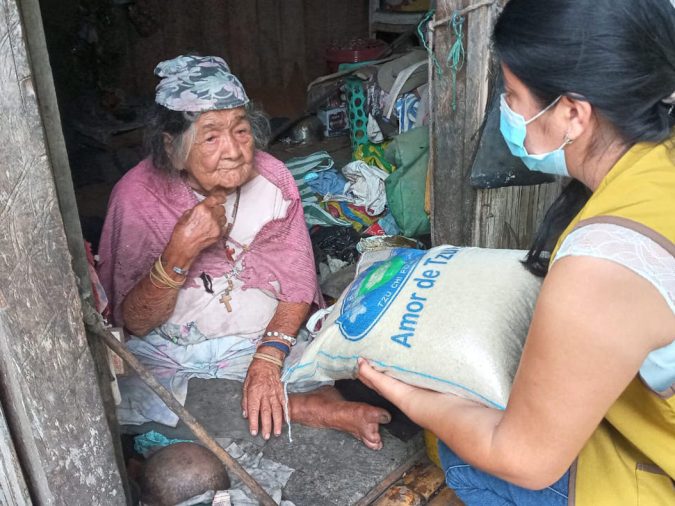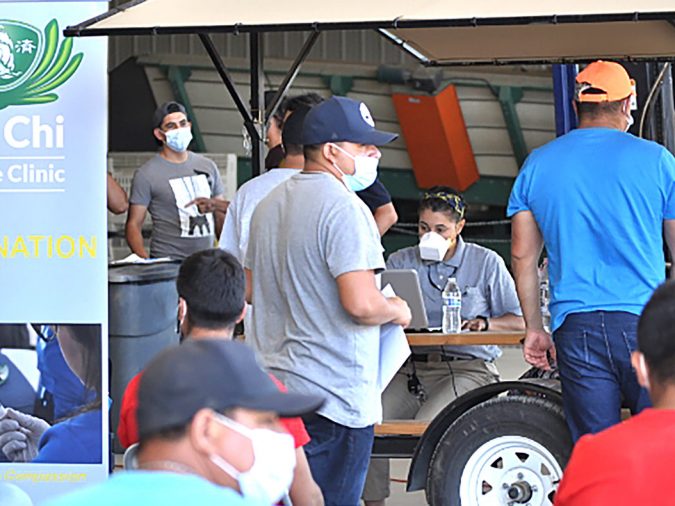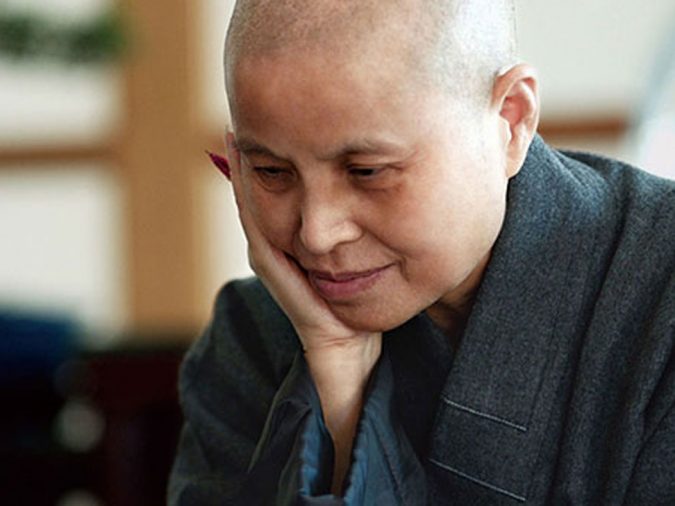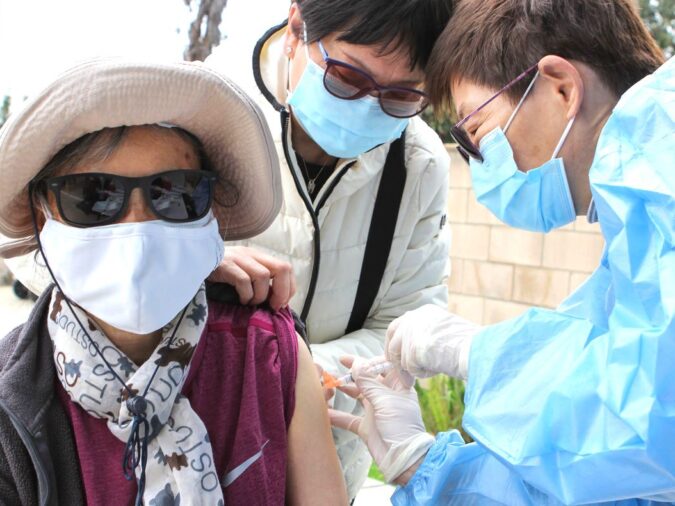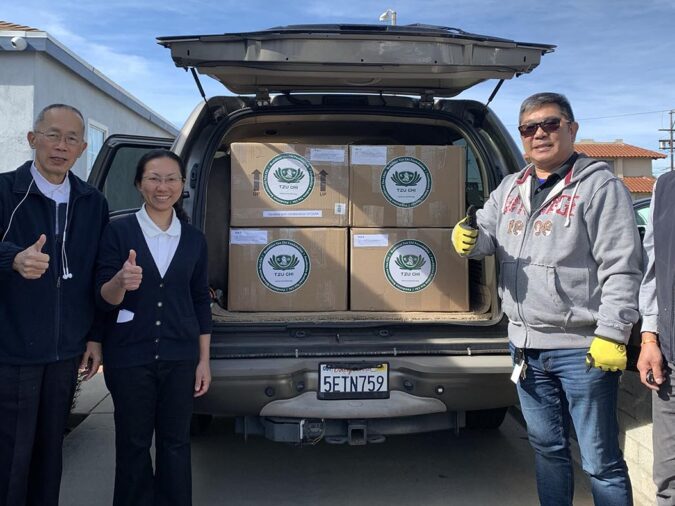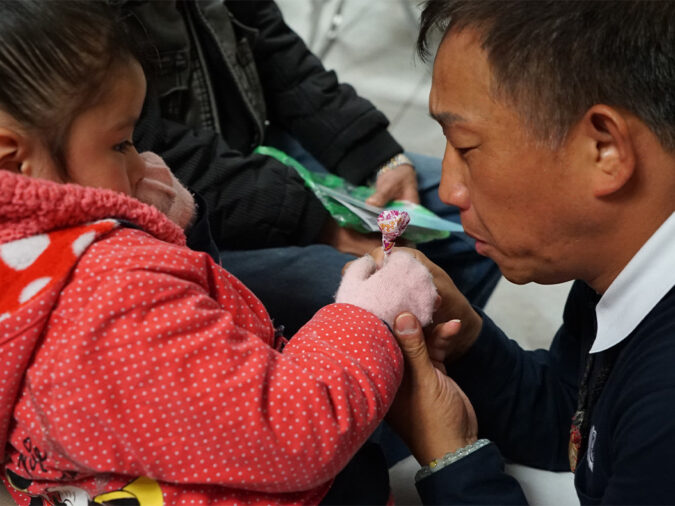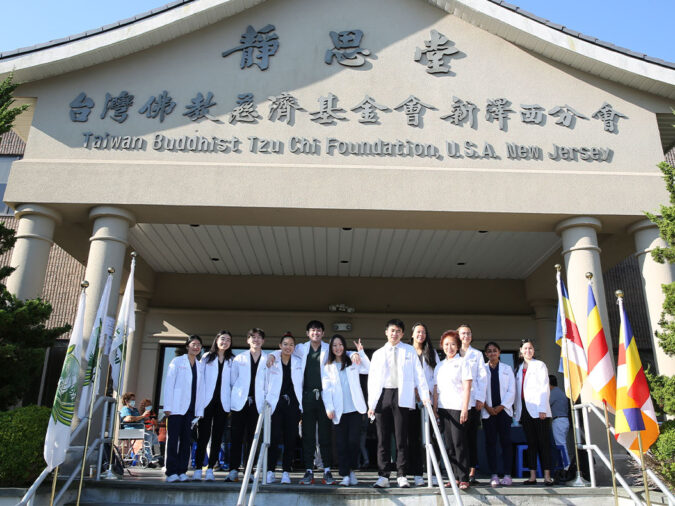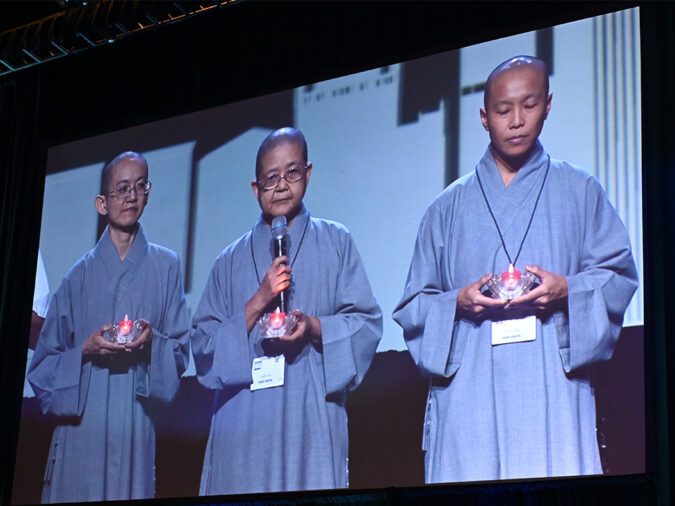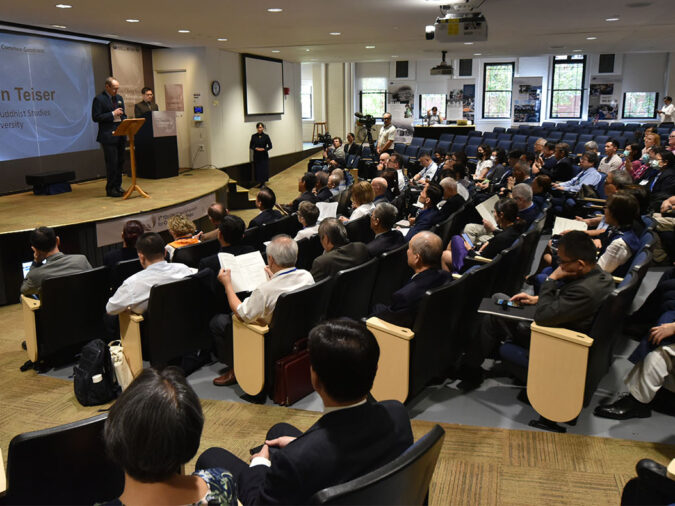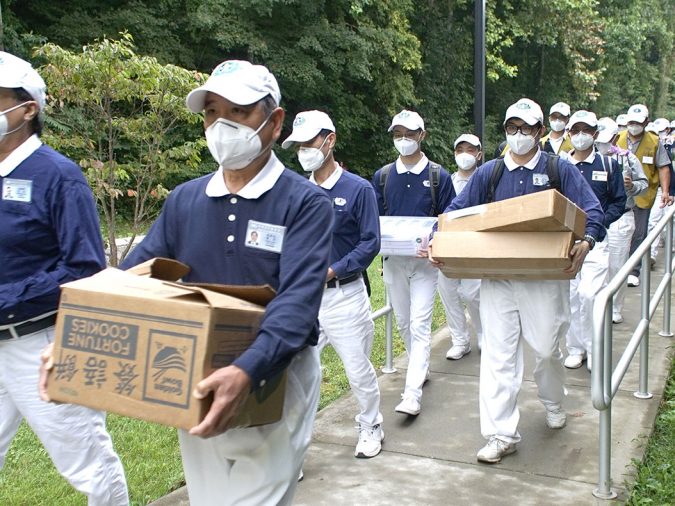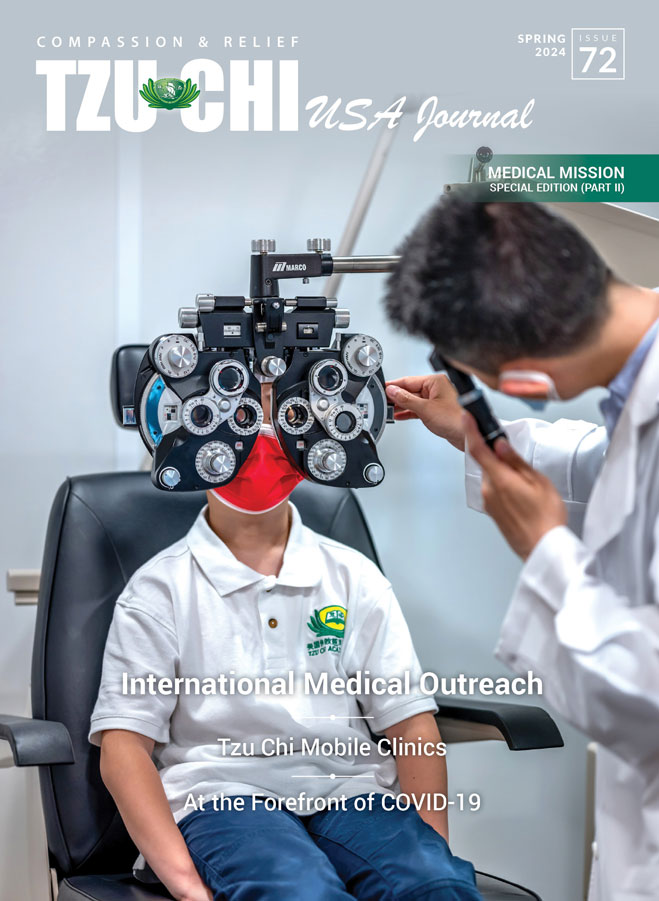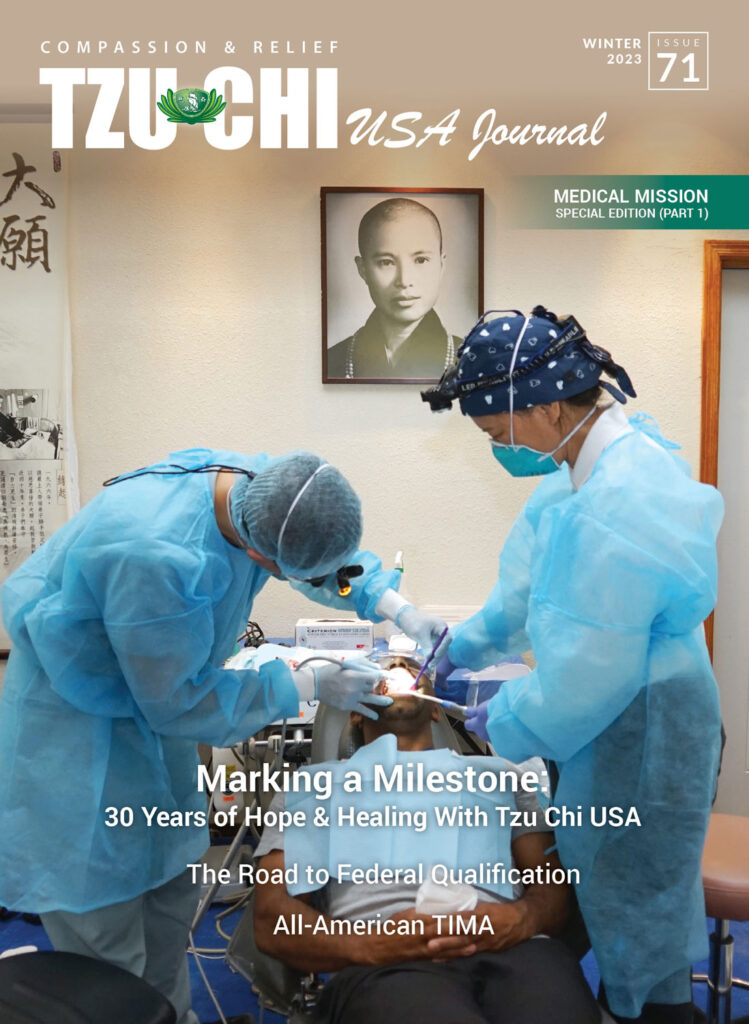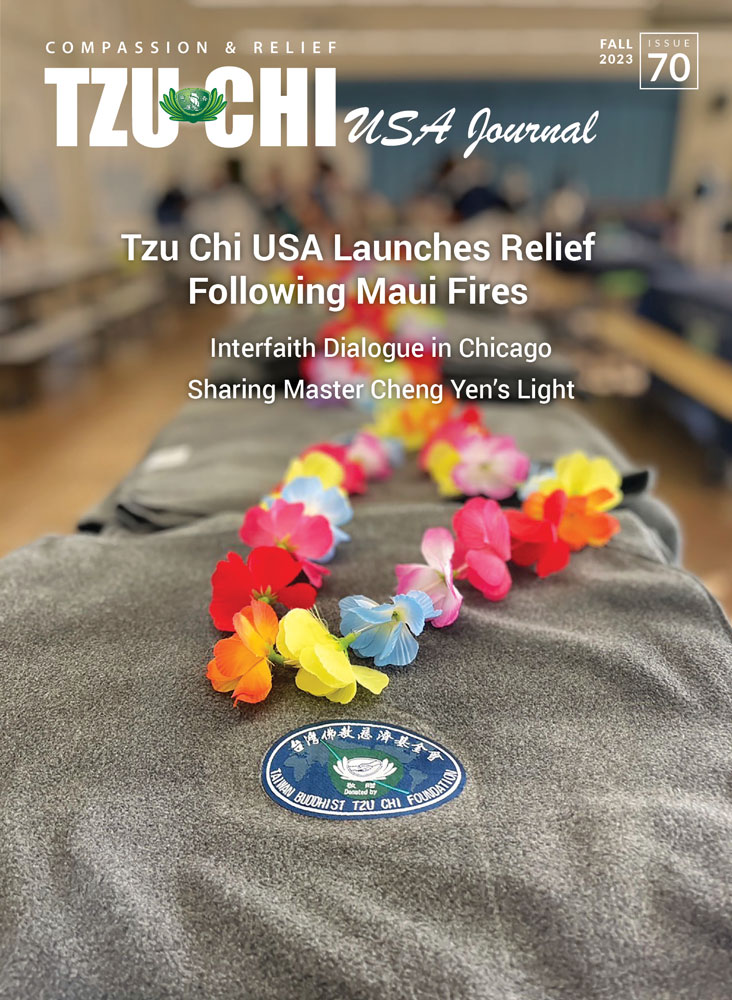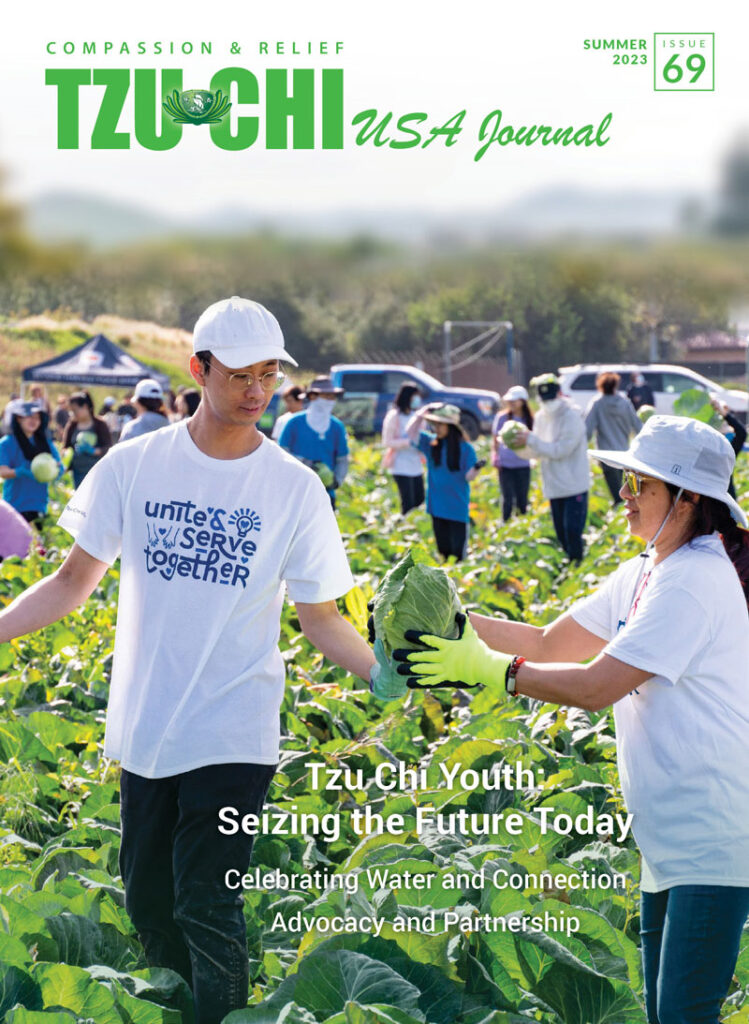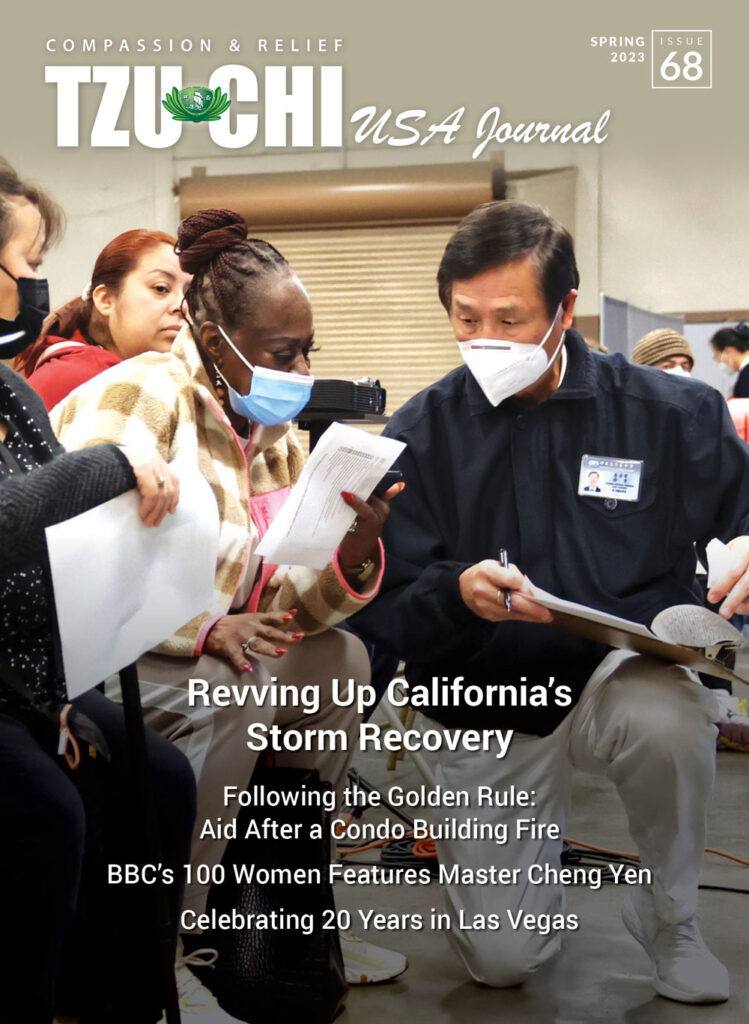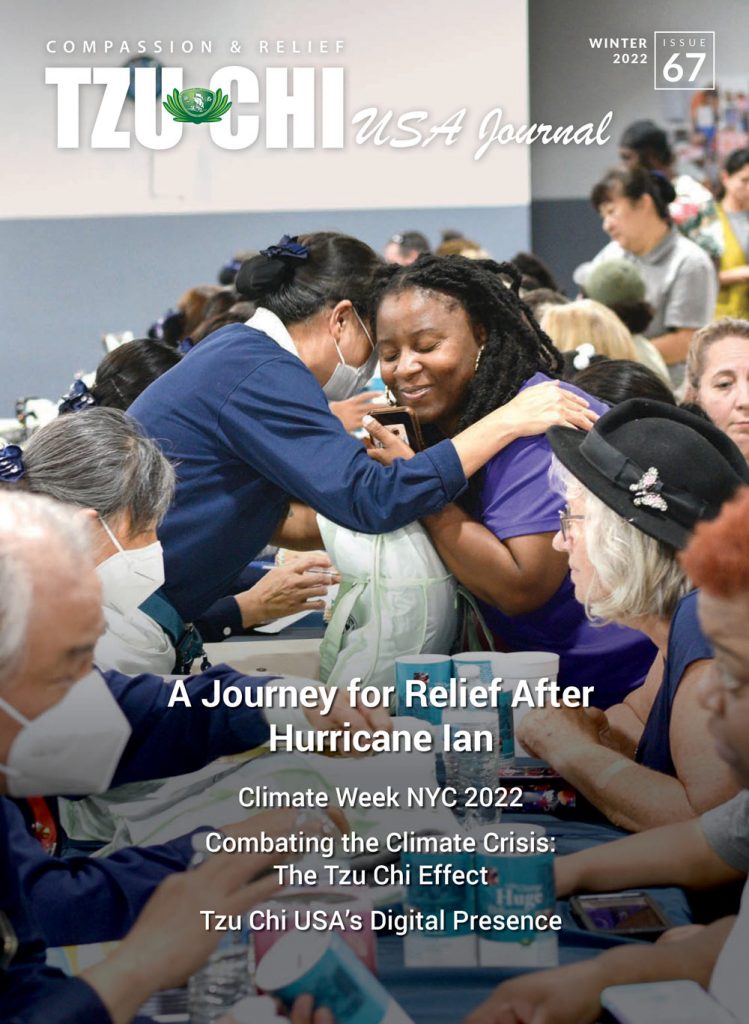Students at Tzu Chi schools and academies across the United States strive for scholastic excellence yet also aim to be a light in the world, of benefit to others. Photo/Jack Chen
By Jennifer Chien | Translated by Diana Chang | Edited by Ida Eva Zielinska
Published #62 | Fall 2021 Issue
SHARE
Tzu Chi’s educational mission is to advance a global humanistic culture, which it does through schools (operated by the Buddhist Tzu Chi Education Foundation) and programs (by Tzu Chi USA’s Education Department) that balance developing the mind and opening the heart. They comprise Great Love Preschools, of which there are currently four – two in California and two in Texas – and Tzu Chi Elementary School in Walnut. Each offers a holistic curriculum that supports spiritual, intellectual, physical, social, and creative development while cultivating integrity and social responsibility.
Concurrently, Tzu Chi Academies, which are weekend programs operated by Tzu Chi USA’s Education Department, focus on teaching the Chinese language and culture and the practice of joyous giving through sincere compassion. The first Tzu Chi Academy was established in Los Angeles in 1994, and today, there are 25 across 14 states, with nine in California alone.
The Buddhist Tzu Chi Education Foundation also created a Character Education Program that has been reaching students in elementary and middle schools throughout the United States since 2006. The Foundation additionally offers seasonal camps that aim to enhance children’s interpersonal skills while helping them build good character, develop self-esteem, and acquire self-management skills for life.
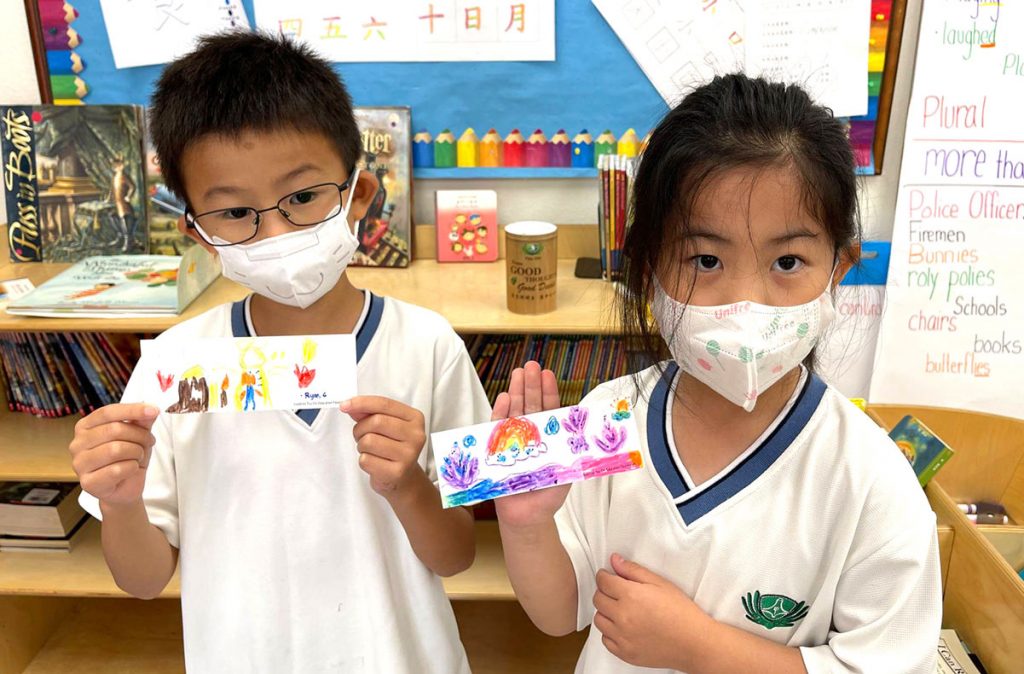
Celebrating the Fruits of Excellence
This year, 2021, brought honors to two Tzu Chi educational institutions in California – Tzu Chi Academy Tri-Valley in San Ramon, and Tzu Chi Elementary School and Preschool in Walnut – through accreditation from the Accrediting Commission for Schools of the Western Association of Schools and Colleges (ACS WASC).
The purpose of the Commission is to foster excellence in elementary, secondary, adult and postsecondary institutions, and supplementary education programs. The Commission encourages school improvement through a process of continuing evaluation and recognizes institutions through granting accreditation to the schools that meet an acceptable level of quality in accordance with the established criteria.
ACS WASC Website
According to Elizabeth Oberreiter, Senior Director at ACS WASC, the accreditation represents a third party evaluating and validating the school’s complete educational system. “It’s an outside set of eyes looking at the program. And WASC looks at everything in order to validate the program.”
We have over 5,000 schools around the world that are WASC accredited, and they go from kindergarten to adult schools to supplemental programs, which are like after-school programs, and they’re worldwide.
Elizabeth Oberreiter
Senior Director, ACS WASC
In February, ACS WASC accredited Tzu Chi Academy Tri-Valley in San Ramon, as meeting their Supplementary Education Center/ Program criteria for Language. Tri-Valley is the first WASC accredited Academy in the Bay Area, while being the newest, celebrating its 10th anniversary in 2021. The Academy is also a member of the Association of Northern California Chinese Schools (ANCCS) and is the only ANCCS school to now be WASC accredited.
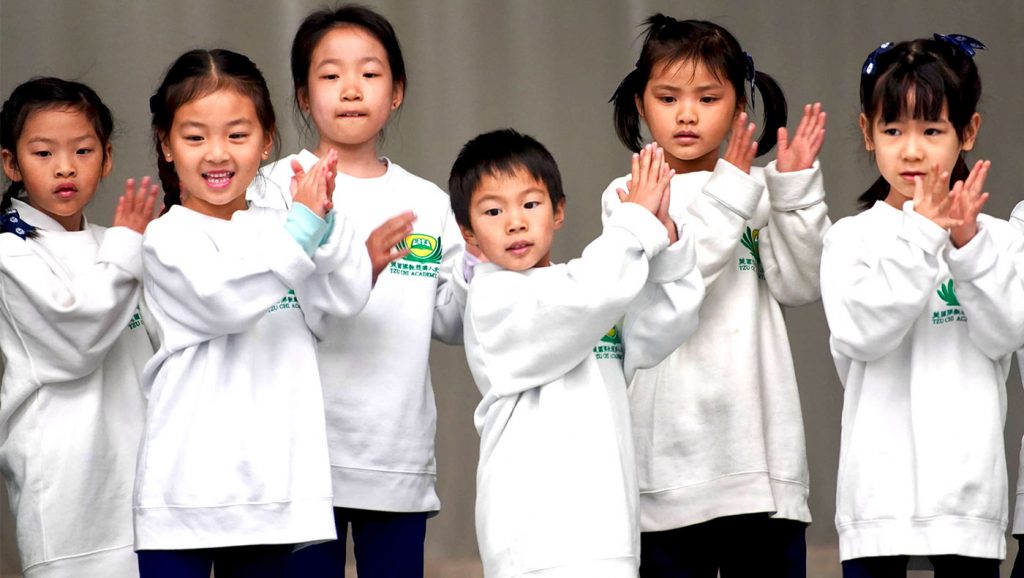
The Path to and Rewards of WASC Accreditation
WASC is one of the six regional accrediting commissions in the United States approved by the U.S. Department of Education. For Jack Chen, Principal of Tzu Chi Academy Tri-Valley, one of the most significant advantages of WASC accreditation is that other schools now recognize the Academy’s credits in Chinese Language instruction.
WASC accreditation is a requirement for public schools, especially high schools because high school credits must be accredited in order to articulate with colleges and universities. Tzu Chi Tri-Valley Academy is now certified to offer high school credit. High school students can take Chinese classes at Tri-Valley, and their Chinese class grades will be listed directly on their high school transcripts as an official course and grade.
Jack Chen
Principal, Tzu Chi Academy Tri-Valley
And, this was the plan all along, Chen shared. Before establishing the Tzu Chi Academy Tri-Valley the planning team made high school credited classes a goal and directed teaching standards and operations to meet WASC accreditation standards. Chen then added, “what was most touching was that when we proposed to get WASC, an application process that takes a large group of people, in fact, the whole Academy, including teachers, students, volunteers, and parents, were ready to participate and support the application.” Their dedication and spirit paid off: Mission accomplished.
In June, five months later, Charles Crane, Principal of Tzu Chi Elementary School and Preschool in Walnut, also learned that this institution had received WASC accreditation. It was a milestone, indeed. Buddhist Tzu Chi Education Foundation head Debbie Lee remembers the path to reaching it well. The Foundation established it first preschool in 2006, which led to the other three and then an elementary school in 2010, yet a level of public recognition felt missin.
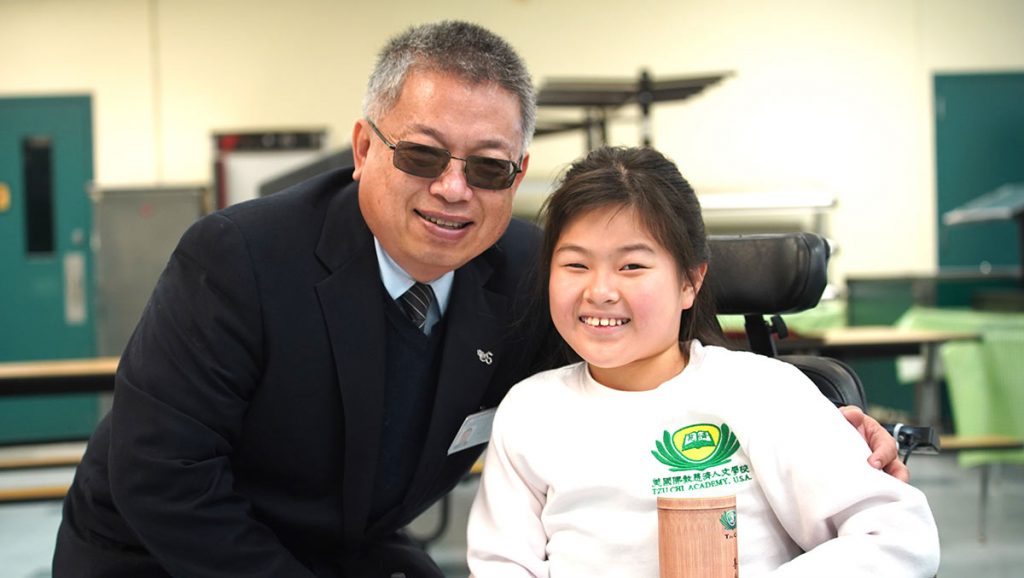
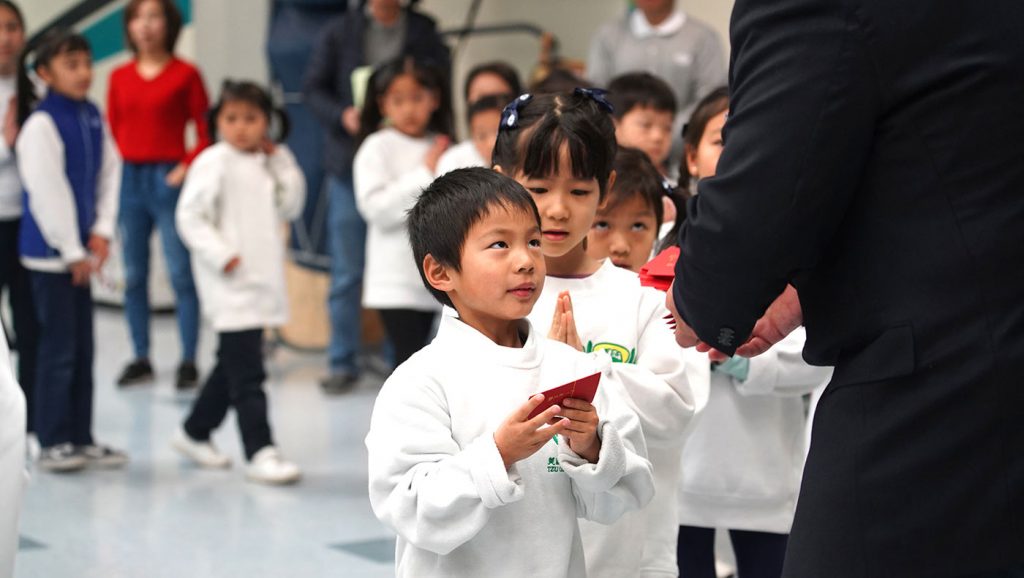
Although we felt that our school was very good, and the model was good enough to be applied in continuing to establish schools, with the preschools receiving good feedback from the public in all aspects, we began to encounter a bottleneck at the elementary school stage. We needed to have a third party’s voice, a well-known accreditation to recognize us so that parents can be more assured that Tzu Chi is recognized by everyone, whether in the academic, overall development, or other aspects of the school.
Debbie Lee
CEO, Buddhist Tzu Chi Education Foundation
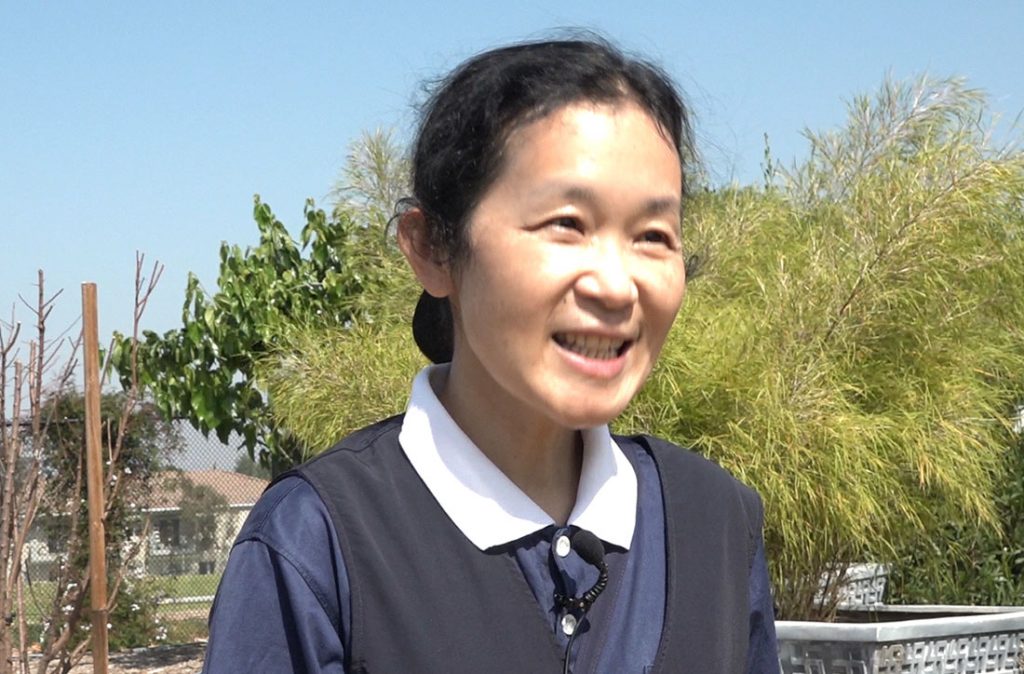
That kind of recognition of excellence is what this WASC accreditation brings.
What makes [WASC accreditation] special from the private school perspective is that not all private schools are accredited and not all elementary schools are accredited. Very, very few are accredited, and those that are accredited see the value in WASC coming in to look at their program. We’re not like an auditor or an evaluator; we’re colleagues that come to see your program, all of the school’s programs. And we look at the curriculum, we look at the instruction, and the assessments, and all of the social and emotional components that really make the academic journey very special for each child.
Elizabeth Oberreiter
Senior Director, ACS WASC
The accreditation process can be challenging, yet Lee and the whole Tzu Chi Education Foundation team were positive and determined, with their far-reaching goals in mind.
Let the certification committee know that we know where our strengths are, where our resources are, where our future direction is, and how to ensure that our strengths are sustained, in writing, and in operation. This is like what Master Cheng Yen says, ‘have a commitment, and to do it step by step.’ We may feel the pressure, but we must work together to achieve the goal step by step, and not be afraid. We should not be afraid of being seen with shortcomings.
Debbie Lee
CEO, Buddhist Tzu Chi Education Foundation
Oberreiter acknowledges that the accreditation process can be stressful for a school, but sees beyond that, saying that “the beautiful thing about it is that a school is able to tell their story and look at the importance of continuous improvement, and that’s what WASC is all about. WASC is all about, ‘how do we improve that academic journey for the students and their future years?’”
In the final analysis, ACS WASC was impressed, as Lee recounts: “WASC has definitely given us a lot of positive recognition during the evaluation process and we’re very blessed.
From interviewing the parents, staff, and students, they felt that Tzu Chi School is different from other private schools. Our members are like family and feel safe, comfortable, and happy in this environment. They also felt that Tzu Chi’s curriculum was very diverse, not only in academics, but also in bilingualism and environmental science, which the judges felt was very unique.”
Oberreiter kindly shared some of her observations, and what impressed her the most about Tzu Chi Elementary School and Preschool in Walnut:
Many, many factors impressed me as a former principal as well. But I think the immersion program impressed me the most – that ability to bring in both languages. Also, the dedication of the teachers. The dedication of the parents to enroll in a very small school, and some of the parents are driving in from pretty far away for their [children’s] education. Something else that impressed me was the curriculum offered to the students – it wasn’t just opening up the books, but it was that hands-on curriculum; that they were able to use not just ‘all the time, computers’ like everybody is using these days, but that handson approach. That was very, very impressive. What we also saw was a very strong ability to grow for many future years to come, as well as sustainability. That’s another important factor when we first come and look at a school. ‘Is the school able to continue for many more years?’ And so, we saw all of that. And I must say that, in some of the classes that I viewed virtually, the kids were having fun. They were enjoying their education, and that’s what it’s all about, for students to enjoy learning and seeing them grow from that.
Elizabeth Oberreiter
Senior Director, ACS WASC
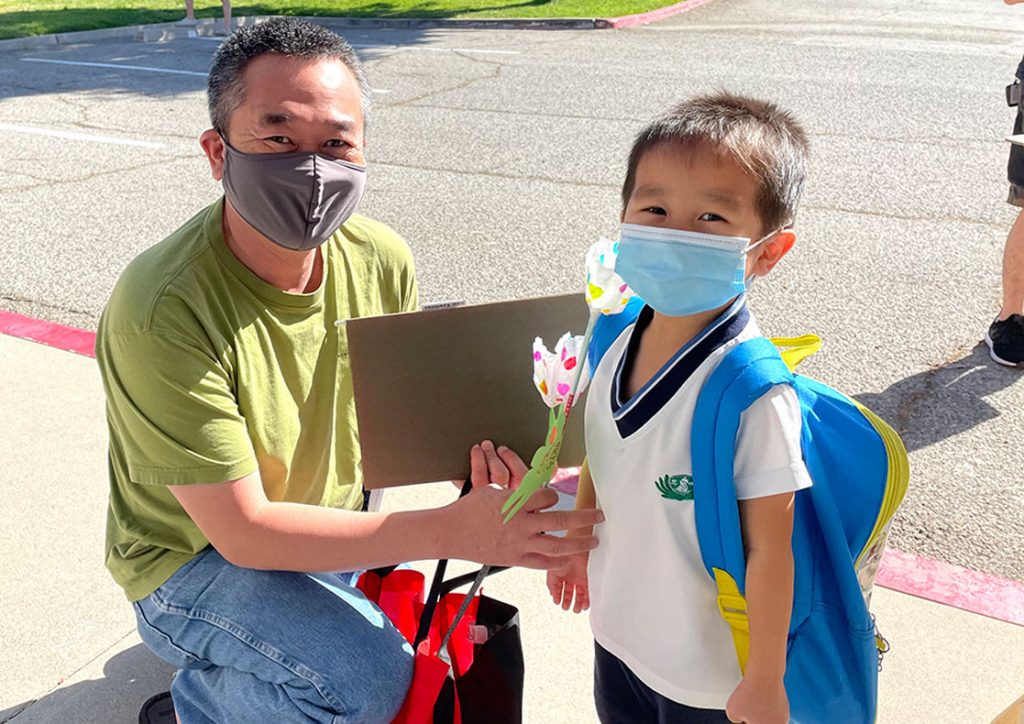
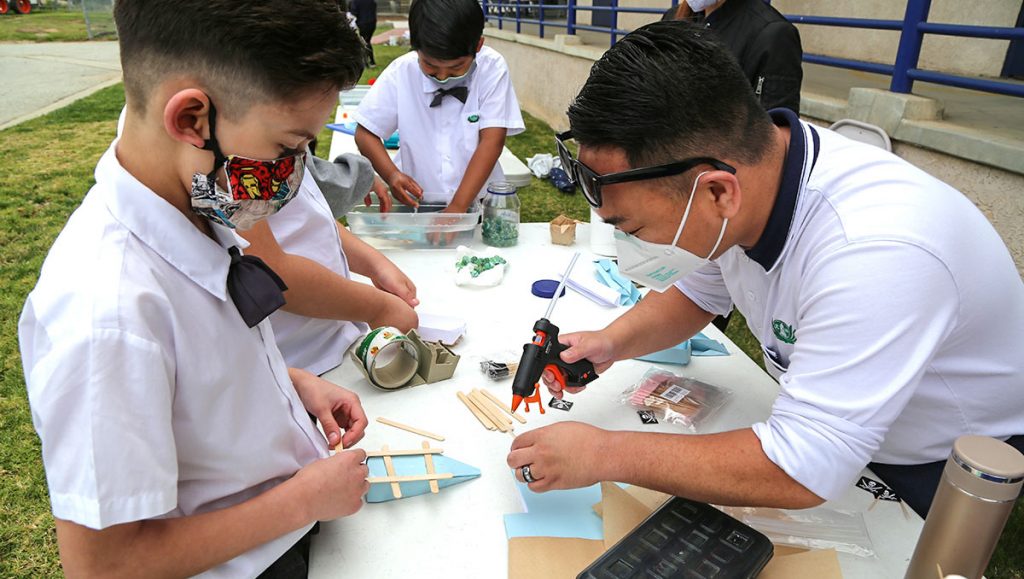
The Future Looks Bright
Debbie Lee and the Buddhist Tzu Chi Education Foundation are thrilled about this milestone and what it represents. As the only WASC accredited Tzu Chi school to date, Tzu Chi Elementary School and Preschool in Walnut can be used as a benchmark and training ground for other Tzu Chi schools, thus benefiting them al
WASC is an international level accreditation, and it is also an internationally credible accreditation organization, including many famous colleges and universities, such as Harvard, are WASC accredited schools. Schools that are accredited represent a certain level of academic performance. If you pass WASC accreditation, it means that your school has reached a certain level, and it will certainly be a plus to apply for other accreditation, awards or grants in the future.
Debbie Lee
CEO, Buddhist Tzu Chi Education Foundation
SHARE:
